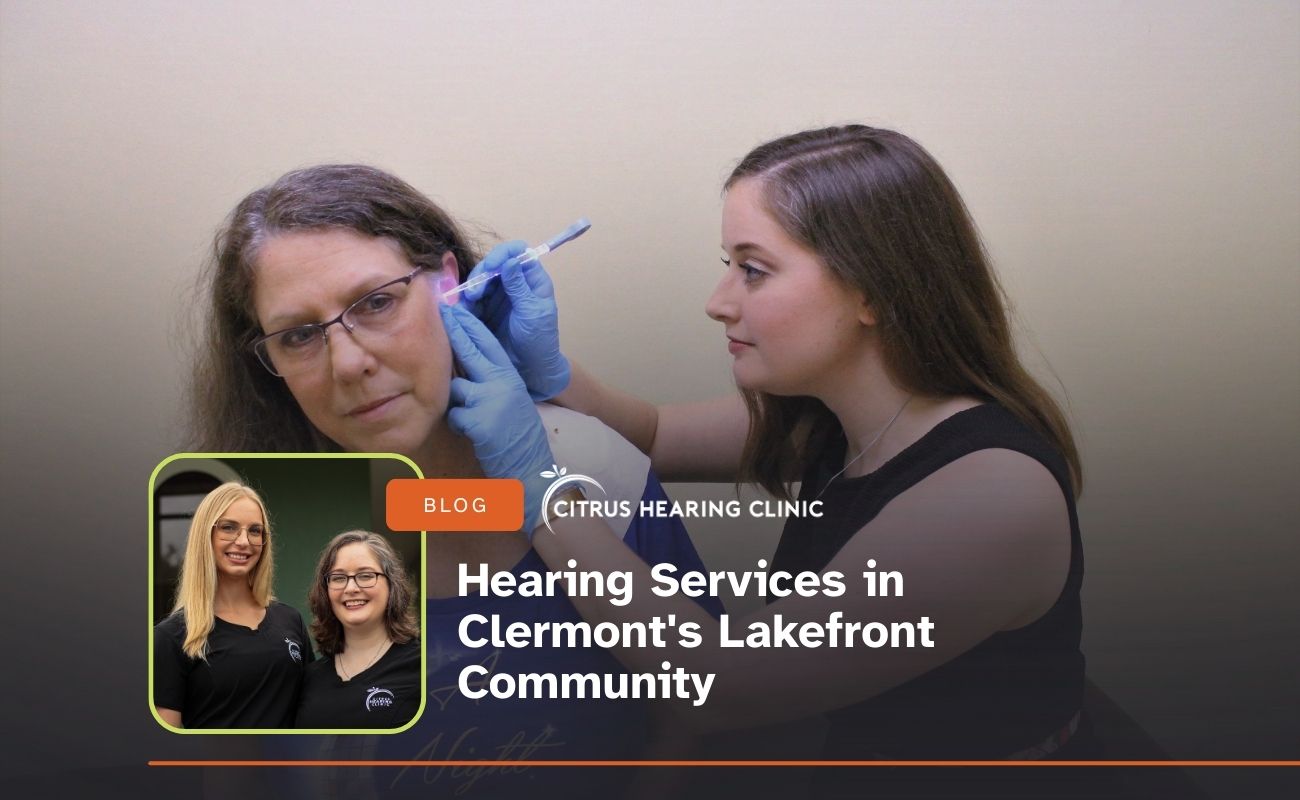7 Warning Signs You Need a Hearing Test (Beyond Just Volume)


Most people think hearing loss is simply about turning up the TV volume or asking others to speak louder, but the reality is far more complex. Hearing changes often develop gradually, and your brain adapts so well that the early warning signs can be subtle and easily overlooked. At our Clermont audiology practice, we see patients who are surprised to discover they've been experiencing hearing difficulties for months or even years without realizing it.
Understanding these warning signs can help you address hearing changes early, when treatment options are most effective. Our board-certified audiologists, Dr. Laura Bradley Pratesi and Dr. Teresa J. Parsons, both use hearing aids themselves and understand firsthand how these subtle changes can impact daily life.
1. Conversations Become Mentally Exhausting
One of the most telling signs of hearing loss isn't about volume at all—it's about the effort required to understand speech. If you find yourself feeling unusually tired after social gatherings, phone calls, or meetings, this could indicate your brain is working overtime to fill in missing auditory information.
This listening fatigue occurs because your brain redirects energy from other cognitive functions to help process incomplete sound signals. Many of our patients report feeling relieved when they realize this exhaustion isn't a normal part of aging but rather a treatable symptom of hearing changes.
2. You're Constantly Asking People to Repeat Themselves
While this might seem obvious, the frequency matters more than you might think. If you regularly find yourself saying "What?" or "Can you repeat that?" especially in normal conversation volumes, it's time for a professional evaluation. This pattern often starts in noisy environments but gradually extends to quieter settings.
The frustration isn't just yours—family members and friends may begin to feel like they're constantly repeating themselves, which can strain relationships and lead to communication breakdowns.
3. Background Noise Becomes Your Enemy
Restaurants, family gatherings, and social events become increasingly challenging when you have hearing loss. You might notice that you can hear people talking but can't understand what they're saying when there's background noise present. This happens because hearing loss often affects your ability to separate speech from competing sounds.
If you find yourself avoiding social situations or feeling anxious about dining out because of difficulty following conversations, this is a significant indicator that a hearing evaluation would be beneficial.
4. Phone Conversations Are Becoming Difficult
Modern phones are designed to transmit speech clearly, so if you're struggling to understand callers—especially those you've spoken with comfortably before—this could signal hearing changes. You might notice you need to switch ears frequently, turn up the phone volume, or ask people to speak more slowly.
Phone conversations eliminate visual cues like lip reading and facial expressions that many people unknowingly rely on to supplement their hearing, making them a sensitive test of your auditory processing abilities.
5. You're Misunderstanding Words and Conversations
Hearing loss doesn't just make sounds quieter—it can distort them. You might find yourself responding inappropriately to questions because you misheard key words, or laughing at the wrong time because you misunderstood the context of a conversation.
This happens because certain frequencies are often affected before others, making some consonant sounds difficult to distinguish. Words might sound mumbled or unclear, even when others are speaking at normal volumes.
6. Family Members Are Commenting on Your Hearing
Sometimes the people closest to us notice changes before we do. If family members or friends have mentioned that you seem to be having hearing difficulties, don't dismiss their observations. They may notice patterns you haven't recognized, such as not responding when called from another room or missing parts of group conversations.
These outside perspectives can be valuable indicators, especially since hearing loss typically develops gradually and your brain adapts to the changes over time.
7. You Experience Ringing, Buzzing, or Other Sounds in Your Ears
Tinnitus—the perception of ringing, buzzing, hissing, or other sounds when no external sound is present—affects more than 50 million Americans and often accompanies hearing loss. While tinnitus can occur without hearing loss, approximately 90% of people with tinnitus also have some degree of hearing impairment.
As one of the initial 44 clinics nationwide selected to offer Lenire tinnitus treatment, we specialize in comprehensive tinnitus evaluation and management alongside hearing loss treatment.
Self-Assessment Checklist
Consider these questions honestly:
In Conversations:
- Do you frequently ask people to repeat themselves?
- Do you feel like others are mumbling or not speaking clearly?
- Do you have trouble following conversations when multiple people are speaking?
- Do you find yourself watching people's faces more intently when they speak?
Environmental Sounds:
- Do you have difficulty hearing in restaurants or noisy environments?
- Do you miss sounds like doorbells, phone rings, or people calling your name?
- Do you have trouble determining where sounds are coming from?
Daily Activities:
- Do you turn up the TV or radio louder than others prefer?
- Are phone conversations becoming more difficult?
- Do you feel unusually tired after social events or meetings?
- Do you avoid certain social situations because of difficulty hearing?
Physical Symptoms:
- Do you experience ringing, buzzing, or other sounds in your ears?
- Do you feel like your ears are plugged or full?
- Are you unusually sensitive to loud sounds?
If you answered "yes" to several of these questions, a comprehensive hearing evaluation would be beneficial.
The Importance of Professional Evaluation
Online hearing tests and smartphone apps might seem convenient, but they can't replace a comprehensive evaluation by a licensed audiologist. Our hearing assessments go beyond basic screenings to provide detailed information about the type, degree, and configuration of any hearing loss.
We use advanced testing methods including pure tone audiometry, speech recognition testing, and tympanometry to thoroughly evaluate your hearing health. When appropriate, we also use Real Ear Measurements to ensure any recommended hearing devices are precisely calibrated to your specific hearing profile and ear anatomy.
What to Expect During Our Comprehensive Hearing Evaluation
A complete hearing evaluation typically takes 60-90 minutes and includes a detailed discussion of your hearing concerns, medical history, and lifestyle needs. We perform multiple assessments to understand your hearing abilities thoroughly, and we take time to explain your results and discuss appropriate treatment options.
As an independent, family-owned practice, we're not tied to specific manufacturers, allowing us to recommend the most appropriate solutions for your individual needs. Whether that involves hearing aids from leading brands like Phonak, Oticon, Widex, Signia, Starkey, ReSound, or Unitron, or other treatment approaches, our focus is entirely on what will benefit you most.
Take Action for Your Hearing Health
If you recognize these warning signs in yourself or a loved one, don't wait for your hearing to worsen. Early intervention typically leads to better outcomes and can prevent some of the negative impacts associated with untreated hearing loss, including social isolation, cognitive decline, and reduced quality of life.
Contact our Clermont office today at 352-989-5123 to schedule your comprehensive hearing evaluation. Dr. Pratesi and Dr. Parsons understand the challenges of hearing loss from both professional and personal perspectives, and we're committed to providing the thorough, personalized care you deserve. With over 300 five-star reviews and the trust of more than 700 physicians who refer their patients to us, we're here to help you take the first step toward better hearing health.
Other Blogs
Contact us
Clinic Location
Clermont, FL 34711
Opening Hours
Saturday - Sunday: Closed






